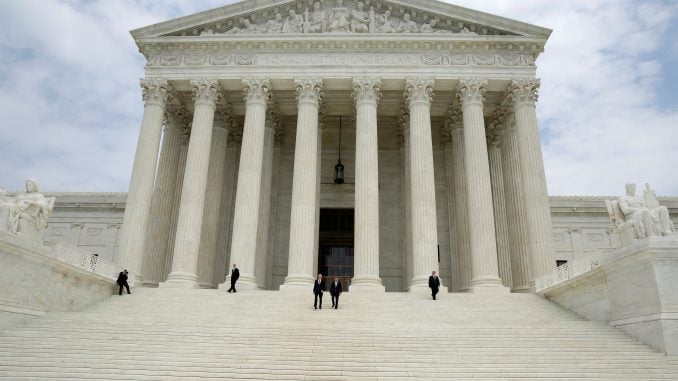
WASHINGTON, D.C. The U.S. Supreme Court on Monday struck down an N.C. law banning convicted sex offenders from Facebook and other social media services.
The court, in an 8-0 ruling, handed a victory to Lester Packingham, who is a registered sex offender due to a conviction for the statutory rape of a 13-year-old girl when he was 21. Packingham challenged the law as a violation of the U.S. Constitution’s First Amendment guarantee of free speech.
“This case is one of the first this court has taken to address the relationship between the First Amendment and the modern Internet. As a result, the court must exercise extreme caution before suggesting that the First Amendment provides scant protection for access to vast networks in that medium,” Justice Anthony Kennedy wrote for the court.
The 2008 N.C. law made it a felony for people on the state’s sex offender registry to use online services that can lead to social interactions with minors. It banned the use of leading social media outlets such as Facebook and Twitter among others. The case forced the justices to weigh free speech rights of sex offenders against a state’s interest in protecting its citizens, specifically from sexual abuse of minors.
The state said the law came out of concern that convicted sex offenders would use such social media platforms to anonymously gather information about minors and identify future victims.
Opponents had raised concerns that the measure could be interpreted as covering other online activity, including some news sites, in which users must create profiles and can interact with other users.
“By prohibiting sex offenders from using those websites, North Carolina with one broad stroke bars access to what for many are the principal sources for knowing current events, checking ads for employment, speaking and listening in the modern public square and otherwise exploring the vast realms of human thought and knowledge,” Kennedy wrote.
Packingham was on N.C.’s sex offender list because of his 2002 statutory rape conviction but was then convicted in 2010 of violating the statute banning registered sex offenders from using some social media outlets when he posted a message on Facebook expressing his surprise at a traffic citation against him being dismissed.
The N.C. law did not require proof that the registered sex offender intended to use a particular social media service for an illegal purpose. It also exempted chatrooms and photo sharing sites. The N.C. Supreme Court sided with the state on the issue saying the inconvenience imposed on registered sex offenders did not outweigh the concern to protect potential victims from online predators.
Packingham was convicted of violating the law after local police saw the Facebook post he wrote upon avoiding a traffic citation. “Praise be to GOD. WOW! Thanks JESUS,” he wrote.
During February’s argument in the case, Justice Elena Kagan mentioned Donald Trump’s Twitter feed as an example of how social media has become indispensable in the political sphere.
Eight justices were unanimous in their ruling; Justice Neil Gorsuch joined the court after arguments in the case took place, so he did not join in the opinion.
However, Justices Alito, Roberts and Thomas did not sign on to Kennedy’s opinion saying that some of its language was too sweeping, indicating a more targeted ban on social media for sex offenders may be well-received by the high court.
Monday’s decision is one of 17 expected to come from the court this week on closely watched cases ranging from free speech to religious liberties and if constitutional rights extend to illegal aliens. Justices released several Monday and are scheduled to release more June 26.
With the addition of Gorsuch to the bench, cases that are tied 4-4 among the eight justices serving after the death of Justice Antonin Scalia last year could be scheduled for a new hearing next year with Gorsuch breaking the tie.



